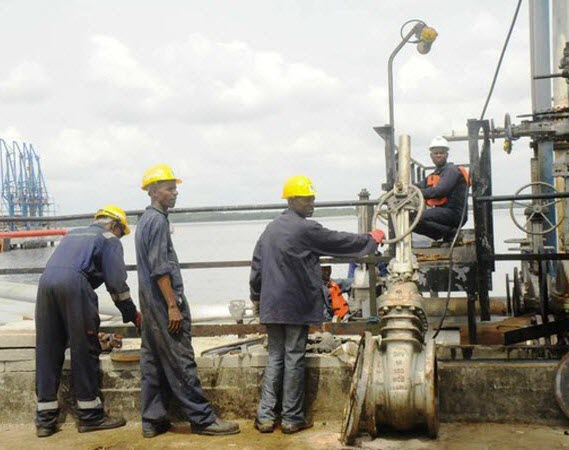There are no products in your shopping cart.
| 0 Items | £0.00 |

 NIGERIA'S foreign reserves have fallen to a two-year low of $39.84bn according to a recent economic report published by the Financial Derivatives Company as crude oil sales remained below government projections over the last quarter.
NIGERIA'S foreign reserves have fallen to a two-year low of $39.84bn according to a recent economic report published by the Financial Derivatives Company as crude oil sales remained below government projections over the last quarter.
With her economy tied to the fate of global petroleum prices, Nigeria's budget is predicated on the country selling 2m barrels of crude a day at $60 a barrel. Although prices have been above $60 a barrel lately, Nigeria has an organisation of Petroleum Exporting Countries (Opec) quota of 1.68m barrels a day, less than the 2m barrels upon which the budget is based.
This has meant that the government needs to dip into its foreign reserves and resort to borrowing to fund its budget. Fortunately for Nigeria, however, global oil prices have risen over the last week to about $70 a barrel as a result of the spat between the US and Iran and could rise higher if the altercation escalates any further.
According to the report, Nigeria's quarterly oil revenue could hit $15bn as the market reacts to the US-Iranian standoff. Nigeria's foreign reserves stood at $39.65bn on November 21, 2019, compared with $40.33bn as at end of September 2019.
Central Bank of Nigeria (CBN) data showed that the reserves were $43.83bn at end of December, 2012 as against $68bn in August 2008 before the global financial crises impacted negatively on them. Over recent years, the CBN has maintained that inflows into the reserves was not consistent with oil prices, pointing out that this underscores the need for tighter fiscal controls around oil revenues.
Also, the bank said there was an urgent need to pursue policies that would foster macro-economic stability, economic diversification as well as encourage foreign capital inflows. It said a higher rate of retention of oil revenues should facilitate the efforts at maintaining exchange rate stability as an antidote to imported inflation, even without excessive reliance on monetary tightening measures.
Earlier today, President Muhammadu Buhari met with the group managing director of the Nigeria National Petroleum Corporation (NNPC), Mela Kyari, at the Presidential Villa in Abuja. Later today, President Buhari who also serves as Nigeria's minister of petroleum resources, will also be meeting with the minister of state for petroleum Timipre Sylva, to discuss the current global situation.
Brent crude, the global benchmark, gained 2.4% to reach $70.24 per barrel on Monday, the first time prices have hit that amount in more than seven months. Whenever there is conflict in the Middle East, the price of crude oil has always soared, making Nigeria one of the world's major beneficiaries, along with other Opec nations.